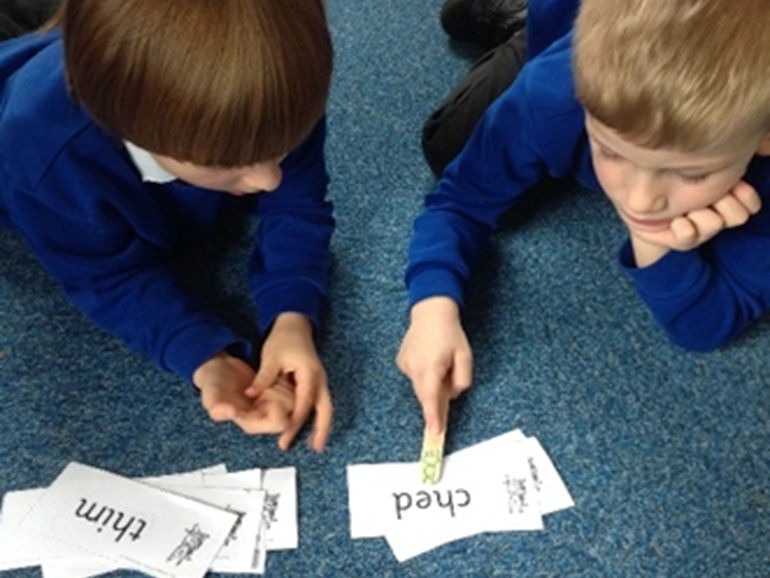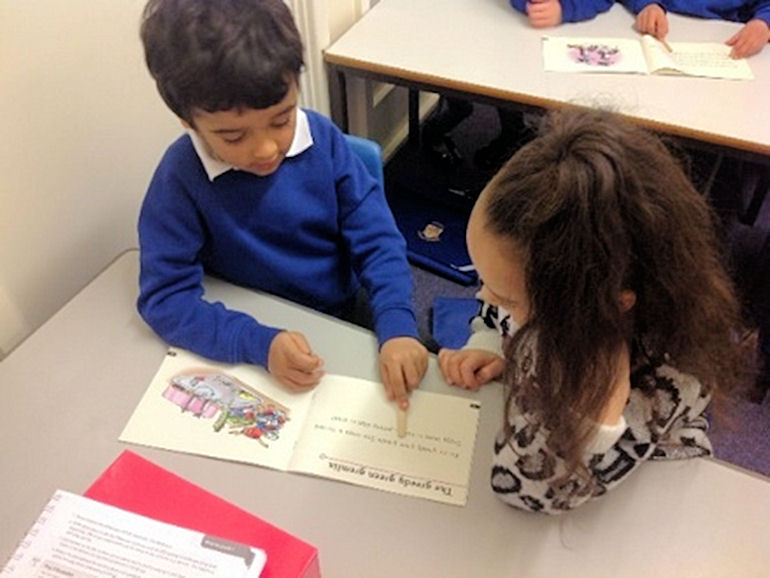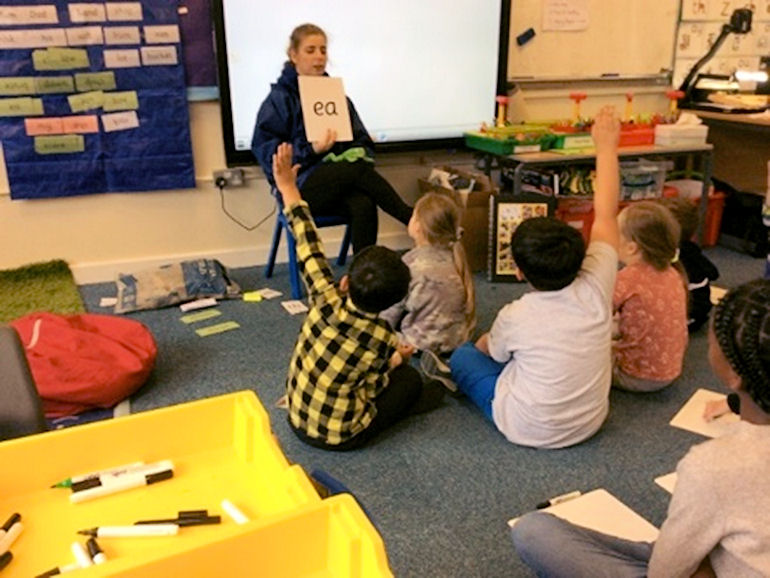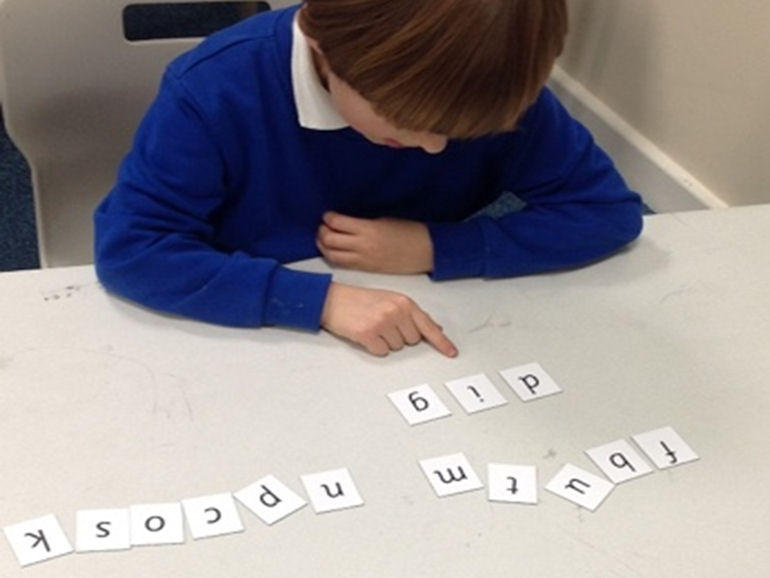English
At Paget Primary School, it is our intention to provide pupils with a language rich education in English which will teach pupils how to speak, read and write fluently, so that they can communicate their ideas and emotions effectively.
Our intention is to build quality books at the heart of our curriculum in order to encourage pupils to read widely to develop a deeper understanding of themselves and of the world around them; establish an appreciation and love of reading; gain knowledge of the wider curriculum; develop good fluency and comprehension skills and become great writers.
Phonics/Reading in EYFS and KS1
We want your child to ‘be the best they can be’ and to do this Paget have, since October 2019, been using the RWI Phonics scheme from EYFS to Year 2, to get your children off to a flying start with their literacy. We also use this to support any child in Year 3 or 4 that needs that extra boost to help them read fluently.
The government strongly recommend the use of synthetic phonics when teaching early literacy skills to children. Synthetic phonics is simply the ability to convert a letter or letter group into sounds that are then blended together into a word.
RWI is a method of learning based upon letter sounds and phonics, and we use it to aid children in their reading and writing because reading opens the door to learning. A child who reads a lot will become a good reader. A good reader will be able to read more challenging material. A child who can read more challenging material is a child who will learn. The more a child learns, the more he or she will want to find out.
Using RWI, the children learn to read effortlessly so they can put all their energy into comprehending what they read. It also allows them to spell easily so they can put all their energy into composing what they write.
The children are assessed regularly and grouped according to their ability. They will work with a RWI trained teacher or teaching assistant. In addition to the RWI, children will also be working on writing skills in their classes with their own teacher.
The Read Write Inc Leader at Paget Primary School is Mrs Waring. If you have any questions or need any guidance on the programme, please pop into the school office or give them a call and they will arrange an appointment for you.
As part of RWI we focus on the 5 P’s. Praise, participation, purpose, passion and pace. We use these principles in all lessons as they are the foundation of effective teaching and learning.
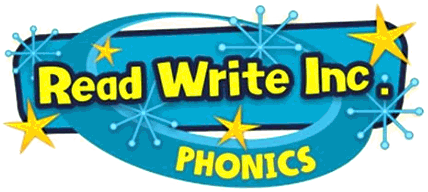
Reading
When using RWI to read the children will:
- Learn 44 sounds and the corresponding letter/letter groups using simple prompts.
- Learn to read words using sound blending (Fred talk).
- Read lively stories featuring words they have learnt to sound out.
- Show that they comprehend the stories by answering ‘Find It’ and ‘Prove It’.
Writing
When using RWI to write the children will:
- Learn to write the letter/letter groups which represent the 44 sounds.
- Learn to write words by saying the sounds and graphemes (Fred fingers).
- Learn to write simple then more complex sentences.
- Compose stories based on story strips.
- Compose a range of texts using discussion prompts.
They will use be taught to use cursive handwriting but also learn rhymes to help them to independently form their letters correctly so that when they are ready, they will easily move to joining.
Talking
When using RWI the children will also work in pairs:
- To answer questions.
- To practise every activity.
- To take turns talking and listening to each other.
- To give positive praise to each other.
Blending
- Help your child learn to read words by sounding-blending (Fred talk) eg. c-a-t = cat, sh-o-p = shop. Children learn to read words by blending the letter-sounds that are in the Speed Sounds set (shown further down the page).
- Help your child to say the pure sounds (‘m’ not ‘muh’, ‘s’ not ‘suh’ etc.) as quickly as they can, and then blend the sounds together to say the whole word.
Support your child at home using the following guide:
Spelling
As part of the scheme your child has daily spellings linked to the speed sound they are learning. We also focus on Red Words (these are tricky words that we can’t Fred in our Head or use our phonics to help us spell).
As children progress through the levels, the amount of spellings they bring home will increase. Once the children move to Grey Group they will access the Spelling Seeds programme that moves away from spelling phonetically and teaches spelling rules. The learning is introduced through fun videos and then the children will practise daily the new rules, completing a spelling test weekly as well as dictation to ensure that they can apply the rules when they are writing.
Reading Books Sent Home
Children in Reception who are learning the first 44 letter sounds and are not blending fluently will bring home sound sheets, picture books and a library book for you to read with them.
Once children can blend fluently and know the first 44 sounds they will bring home Ditty sheets or a red Ditty book, a home reader book and a library book.
Children on Green level to Orange level will bring home a RWI book, a Home Reader book and a library book; these will be changed every 3/4 days.
Children on Yellow level to Grey level will also bring home a RWI book, an Oxford Reading Tree or Treetop book. As these books are lengthier, these will be changed once a week.
Read Write Inc Books: (This is your child’s main reading book) Please encourage your child to read though the speed sounds page first, then the green and red words page and then check your child understands the meaning of words on the vocabulary check page, before they start reading the book. Your child will have read this book at least three times before they bring it home. They should be able to read this book with fluency and expression by the time they bring it home and they should have a good comprehension of what the book is about. At the back of the book are find it/prove it questions for you to do with your child.
Reading at home: To support you and your child at home your child will have access to the Oxford Owl website which has over 100 free ebooks for to enjoy with your child.
Library Books: Once a week, where possible, your child will be taken to the school library to allow them to choose a book for pleasure. These are for you and your child to enjoy together. If your child is able to read a few familiar words, great, but if not, please enjoy reading them to your child. Your child can also include in their reading diaries books they have read from home or books they have taken out of the library and read.
English After RWI
Once children have completed the RWI program, children will move to English and Whole Class Reading lessons. Paget uses ‘The Literacy Tree’ to support in delivering the English curriculum.
The Literacy Tree is the approach of using literature at the core of English teaching in the primary school.
The English national curriculum (2014) states that: ‘The overarching aim for English in the national curriculum is to promote high standards of language and literacy by equipping pupils with a strong command of the spoken and written language, and to develop their love of literature through widespread reading for enjoyment.’
- We believe the exposure of children’s literature within the primary school setting is vital as a rich context for learning; not only within English as a subject but to support building a reading culture throughout the school.
- We aim to use high quality books that offer opportunities for empathy and can aid philosophical enquiry, as a means of developing the spoken language requirements through debate, drama and discussion using the issues raised through, and within, the text.
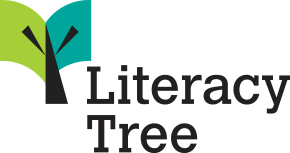
Methodology
By placing books at the core, we use the texts as the context for the requirements of the national curriculum.
The national curriculum states that: ‘‘This guidance is not intended to constrain or restrict teachers’ creativity, simply to provide the structure on which they can construct exciting lessons.’ This would suggest that a context for learning is vital – and this is where our chosen approach ensures that the objectives for reading and writing, including those for grammar can have purpose. We will always aim for our writing opportunities to be meaningful and to feel authentic. Whether these are short or long and that the audience is clear. The books we have chosen offer this opportunity: our aim is that children have real reasons to write, whether to explain, persuade, inform or instruct and that where possible, this can be embedded within text or linked to a curriculum area. Writing in role using a range of genres is key to our approach and we would always model the tone and level of formality. This sits comfortably alongside the following statement from the English national curriculum: ‘The national curriculum for English aims to ensure that all pupils write clearly, accurately and coherently, adapting their language and style in and for a range of contexts, purposes and audiences.’
Coverage and Depth
Through use of The Literary Tree Curriculum we have mapped the coverage of the entire English Programme of Study for Years 2 – 6 for Writing and Reading Comprehension. In many cases objectives are covered more than once and children have opportunities to apply these several times over the course of a year, as well as to consolidate prior knowledge from previous years. This approach supports children to think deeply and develop skills with depth. Where needed, planning sequences are adapted and personalised to ensure all access arrangements can be made to support children with the requirements. As part of these we are using the Spelling Seeds strands to teach spellings within context. Children will be sent home a list of spellings to work each week along with a suitable task.
Reading for Pleasure
A ‘love of reading’ ethos is promoted throughout school and is upheld by staff through the following approaches:
- Daily story time sessions using books with a range of genres and rich with vocabulary;
- Each classroom has a designated book area for reading;
- Reading rivers to display which books have been read in class;
- Author of the month which widens children’s knowledge of authors and encourages children to read a range of genres;
- Opportunities for reading across the curriculum;
- Annual school book fayre;
- Yearly celebrations such as World Book Day.
- Reading Champions
What Else?
What else can I do to help my child learn to read?
Purchasing your own set of RWI sound cards will enable your child to practise the sounds he or she has already learnt and will be most beneficial. Please refrain from teaching new sounds until they have been taught at school. Each week, the sounds being taught in each phonic group are put on the newsletter for your information.
We encourage you to read a variety of books (fiction, non-fiction, rhymes etc.) with your child/ren. Discuss the different features of the books. Talk about the books and other reading materials that you have shared. Explain the meaning of new words. See if your child could change a part of the story to make a new version. You could use puppets or soft toys to retell the story. Most importantly though, show that fun can be gained by listening to stories and reading a range of texts, e.g. cereal packets, shopping lists, road signs, web pages, magazines, comics, newspapers etc.
Finally, don’t worry if your child is struggling at first with their sounds and words, they will get there in their own time. If you have time (we know it is very precious!), we would urge you to try and read stories to your child before they go to bed. This will help develop a wider vocabulary which makes a vast difference to their quality of writing but it will also encourage them to enjoy a good story.
Other Resources
Useful Websites
- Read Write Inc – for more information and ideas for supporting your child visit the RWI website.
- Oxford Owl – visit the Oxford Owl website which has over 100 free ebooks for to enjoy with your child.
- Family Learning: Phonics Games – Phonics games will help your child to practise sounding out words, which will help them to read.
Some of our Phonics Work:
